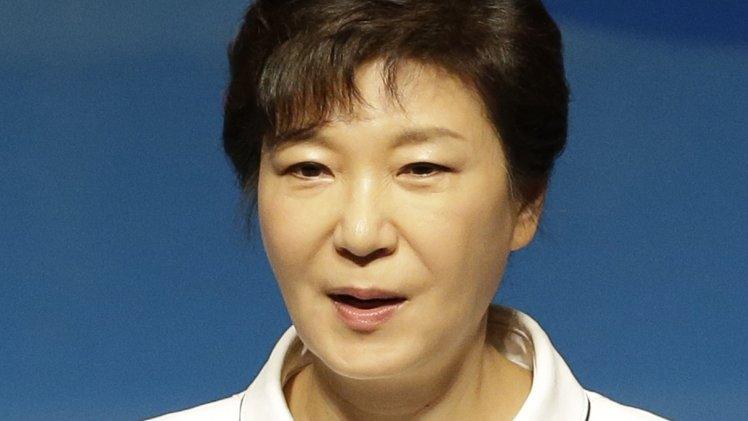S Korea's Moon Chang-keuk apologises over WW2 article
- Published
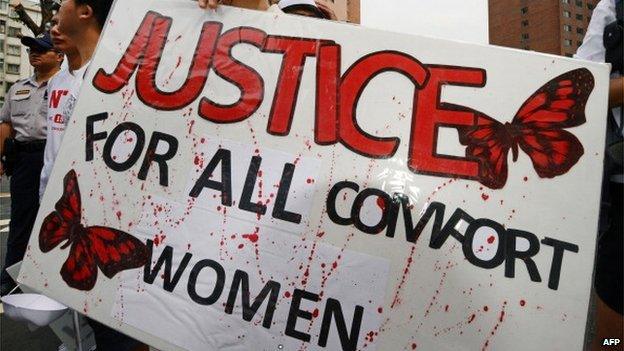
The issue of wartime sex slaves has been a source of constant tension in South Korea
South Korea's prime minister-designate has apologised for an article he wrote in 2005 about wartime sex slaves.
Moon Chang-keuk, a former journalist, wrote in an editorial that Japan should not apologise for using sex slaves.
He was nominated by President Park Geun-hye to replace Chung Hong-won, who resigned after April's passenger ferry disaster.
But he has come under growing pressure to withdraw his name, after being condemned for holding pro-Japan views.
He also reportedly told a church in 2011 that Japan's colonial rule of the Korean Peninsula leading to the division of the peninsula into South and North Korea was God's will.
"I have realised that some people were hurt regardless of my intentions," Mr Moon told reporters on Sunday.
"All of the issues that have been raised were things I did as a journalist.
"If I were to take public office now, I believe that I should act and behave accordingly. I earnestly hope that you will accept my sincerity."
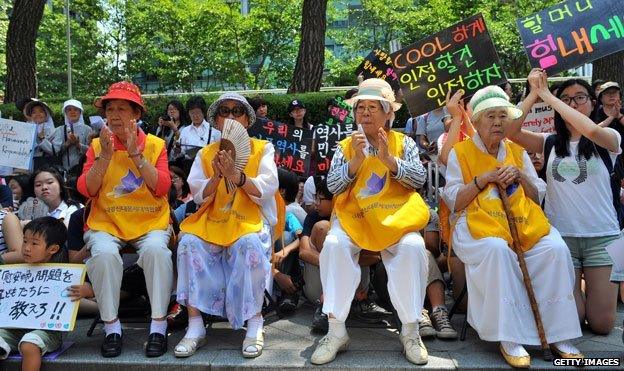
Former "comfort women" gather for regular protests outside the Japanese Embassy in Seoul
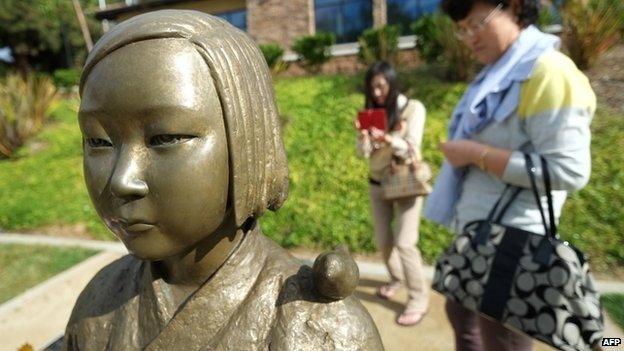
Various memorials have been set up to acknowledge the history of the women
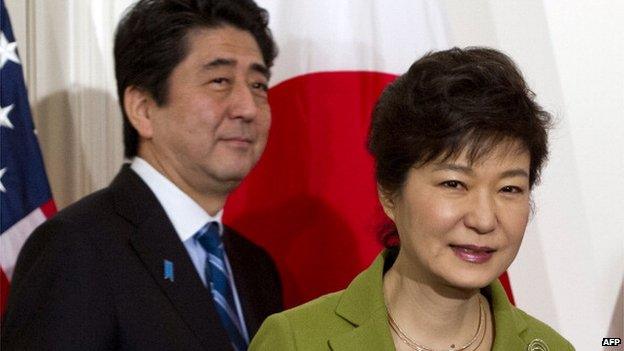
Tensions between Tokyo and Seoul ran high over Japan's use of South Korean 'comfort women' sex slaves in wartime brothels
The issue of Japan's wartime use of Korean sex slaves, known euphemistically as "comfort women", has been a constant source of tensions between Seoul and Tokyo.
Some 200,000 women in territories occupied by Japan during World War Two are estimated to have been forced to become sex slaves for troops.
Many of the women came from China and Korea, but also from the Philippines, Indonesia and Taiwan.
Some conservatives in Japan have claimed that the women were prostitutes - something fiercely denied by the women and by Japan's neighbours.
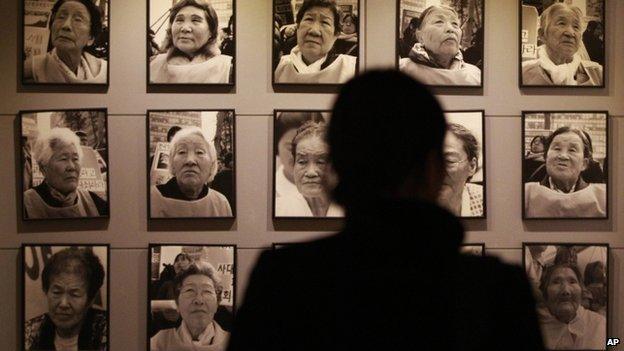
A museum to some of the comfort women was set up in a nursing home in Toechon, South Korea
Tokyo said in March that it would set up a panel to review an apology made in 1993 to survivors of the many thousands of women who were forced into army brothels.
The acknowledgement from Japan was viewed as a landmark apology.
South Korean President Park Geun-hye previously warned Japan that it would only bring isolation on itself if it reviews a statement acknowledging its wartime use of sex slaves.
She also called on Japan to embrace "truth and reconciliation".
"Historical truth is in testimony from the survivors. I hope Japan extricates itself from denial of history and starts making a new history of truth and reconciliation," Ms Park said.
- Published13 June 2014
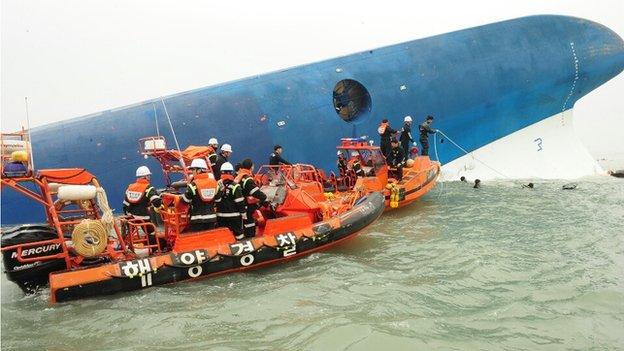
- Published29 May 2013
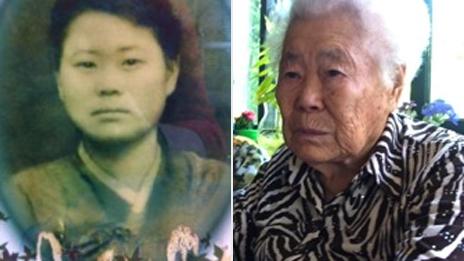
- Published1 March 2014
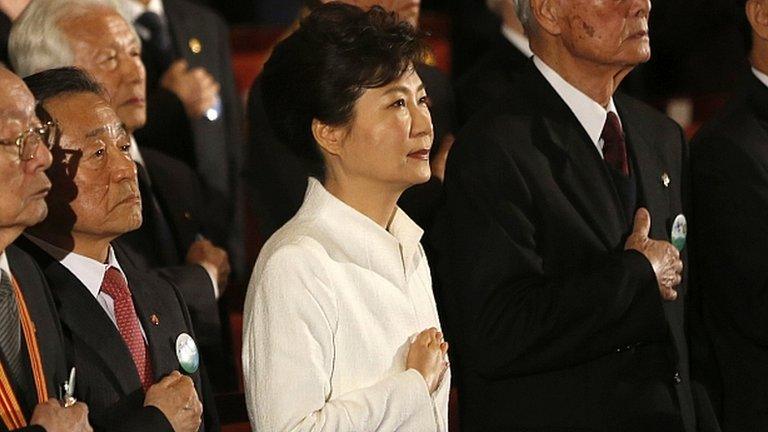
- Published4 November 2013
